Spain’s Christmas Lottery has taken place every year on December 22nd since 1812 without fail, even during the Spanish Civil War years and the coronavirus pandemic.
The 2023 prize money will total €3.7 billion, €2.5 billion of which will be shared among all the winners.
It works out as a top prize of €400,000 per décimo for people who win the top prize, El Gordo (The Fat One).
The second prize per décimo is €125,000 and the third is €50,000.
Then there are two fourth prizes (€20,000 per décimo), eight fifth prizes (€6,000 per décimo) and 1,794 prizes of €100 per décimo.
All in all, there will be 185 million décimos up for sale in total in 2023.
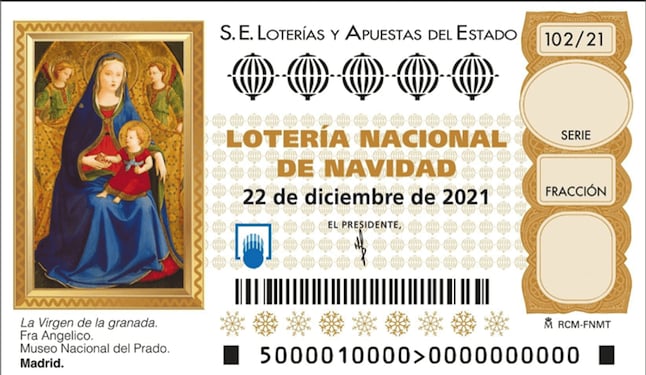
With the odds of winning at least something put at one in six, no wonder the Christmas lottery has a whole nation gripped.
According to the latest stats, around seven in 10 residents aged between 18 and 75 play the Spanish Christmas lottery.
Data from the State Lottery and Betting Society of the State (SELAE) shows Spaniards will invest €63.82 on average in buying lottery tickets for the Christmas draw on Friday December 22nd.
READ ALSO: Is there a science to winning Spain’s Christmas lottery?
History
El Gordo is a Spanish institution and the second oldest lottery in the world.
The first Christmas lottery took place on 22nd December 1812 in Cádiz and the event has been taking place on the same day every year since.
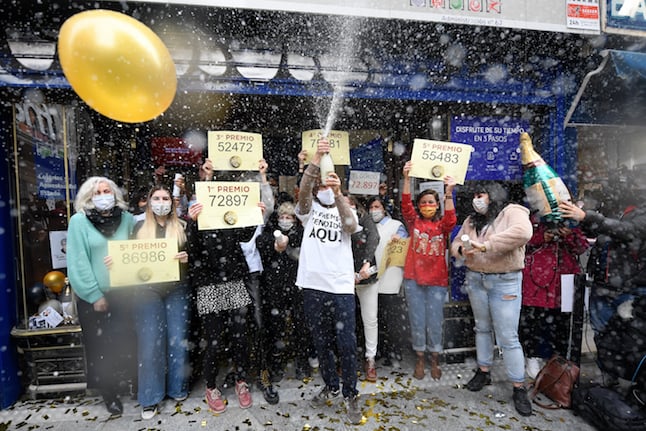
Not even the Spanish Civil War could stop the Christmas lottery, which moved to Valencia when the Republican government had to relocate their capital from Madrid.
After the war, the lottery moved back to Madrid and continued under the regime of the dictator Francisco Franco.
READ ALSO: Where to find traditional British Christmas food in Spain
How it works
Because so many people in Spain take part in El Gordo, the ticketing system is complicated.
Unlike in the UK, for example, you don’t go into a newsagent and shade in the numbers you want on your lottery card. Instead, lottery shops have certain numbers available.
This is why the big winners of the Christmas Lottery are usually from the same area: many people have bought tickets from the same shop which holds all the winning tickets.
This assigning of numbers to certain shops means if you want to ‘play’ a particular number, you might have to travel quite a way — or buy your tickets online.
It’s also possible to track down where to buy your preferred number using online search tools like this one from El Mundo.
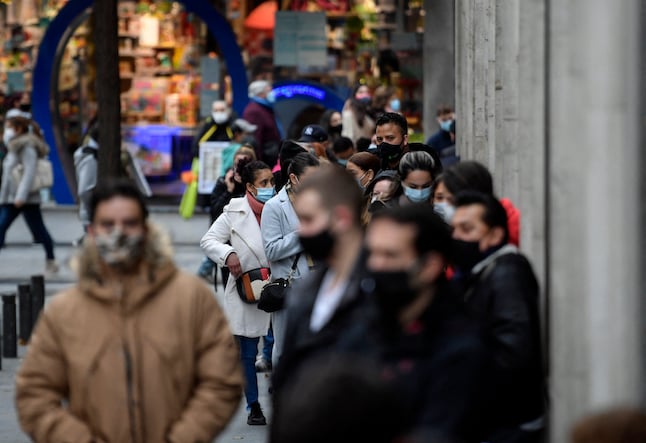
In terms of prizes, because so many people take part, numbers are repeated up to 172 times. That means if you do win ‘the fat one’, you will be sharing your prize with at least 171 others.
This explains why the top individual prize in the biggest lottery in the world comes in at a ‘mere’ €4 million for the winning serie (a set made up of one ticket of each number that participates in the draw).
One ticket (billete) costs a whopping €200, but many people choose to buy a tenth of a ticket (un décimo) for €20.
Even smaller portions of tickets are sold: it is common for businesses to buy a ticket then sell small portions, or participaciones, of that ticket to their patrons for €1.
Where to buy them
You can purchase a ticket in a lottery shop but they are also available at local bars, restaurants and through syndicates at workplaces, social clubs etc. You can also purchase them online.
Sometimes it means shelling out for several just so you are not left out of the group in case of a win!
Tickets are on sale in the lottery shops until 10pm on December 21st or online until 11.45pm.
The advert
Every year the Christmas lottery releases a suitably schmaltzy advert, and the campaign for 2022 is not exception. This is one of three wonderfully produced ads, which focuses on a Ukrainian refugee adapting to life in Spain.
The day itself
Every 22nd December the streets of Spain are silent as everyone huddles around their televisions to watch the El Gordo lottery draw, an affair which begins at 9am and can take over three hours.
The balls are drawn in a unique way befitting the unique lottery tradition, while the numbers are sung by the pupils of Madrid’s San Ildefonso school.
The school was originally a home for orphans and the tradition of the winners of El Gordo donating a portion of their winnings to San Ildefonso dates from this time.

The balls were originally only drawn by boys, with the first girl taking part in the big draw singalong in 1984. Audience members at the live draw, as well as viewers watching from home, are known to dress up in lottery-themed clothing and hats.
On the stage itself are two spherical vessels, one containing balls embossed with the numbers found on the lottery tickets and the other featuring the associated prizes in euros.
“Ball number 20.456 gets €20,000!” they might sing. This goes on, the tension rising until, at some point in the live broadcast, the €4-million ball is drawn making the numbered ball drawn alongside it El Gordo.
The coverage of the draw has famously lambasted as “the most boring Christmas show on TV”.
The winners
In 2011 the tiny Spanish village of Sodeto famously won El Gordo, with all but one of its 250 inhabitants having bought a lottery ticket. The unlucky loser was a Greek resident who lived on the edge of town and failed to buy a ticket because he did not realize just how big the Christmas lottery was.
The winners each claimed a share of €120 million, with people collecting sums ranging from €100,000 to €1 million each.
This was the first time in El Gordo’s 200 year history that one entire village had won the prize, but it is not uncommon for many people in the same location to all win at the same time, given lottery shops are often assigned the full complement of a given number.
This should be a lesson to us all. No-one wants to be the only within a community who missed out on the win!
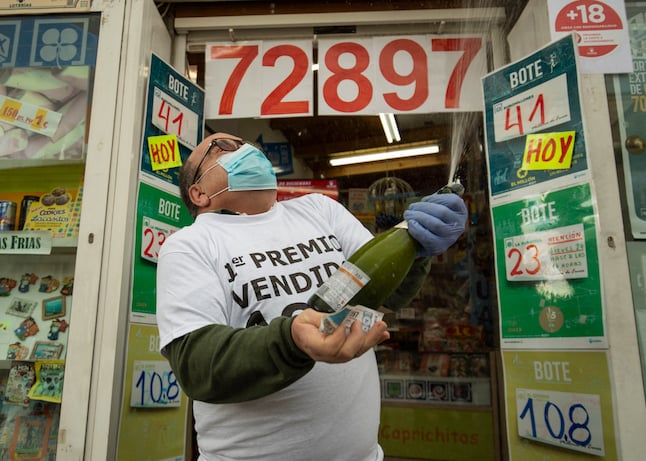
Are the winnings tax free?
Crisis-hit Spain taxed the lottery for the first time in 2013, with the Spanish government hitting the headlines for the 20 percent tax imposed on prizes over €2,500 in the much-loved lottery.
In 2022, that limit was raised to €40,000 tax free on each winning ticket (it remains the same in 2023), meaning the winner of a top prize décimo will get the first €40,000 of the €400,000 tax free and pay 20 percent tax on the rest. Therefore €72,000 would go to Spain’s Hacienda taxman and the winner would keep €328,000.
Warnings
The Christmas lottery is also not immune to scams. Madrid’s city council warns people to buy their tickets only from authorised vendors, and not to believe emails telling them they had won prizes.
Last but not least, the council warns people to keep their ticket safe as losing them makes claiming prizes very difficult indeed.
And there is lots of advice on how to ensure that there’s is no argument between friends sharing a winning ticket.
The best idea is to take a photo of the number, share it on WhatsApp with each other and the terms written underneath, that way there can be no argument later.

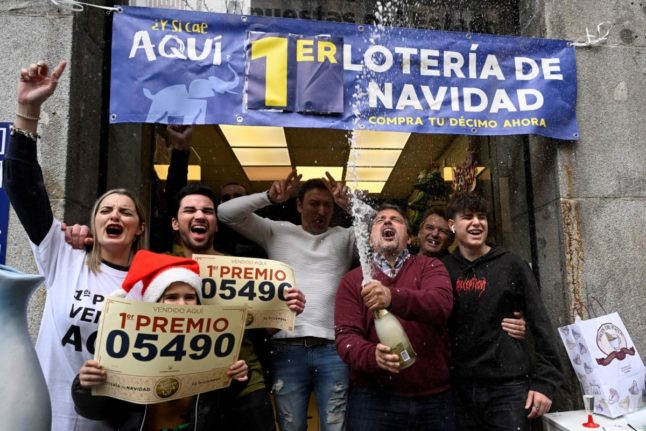
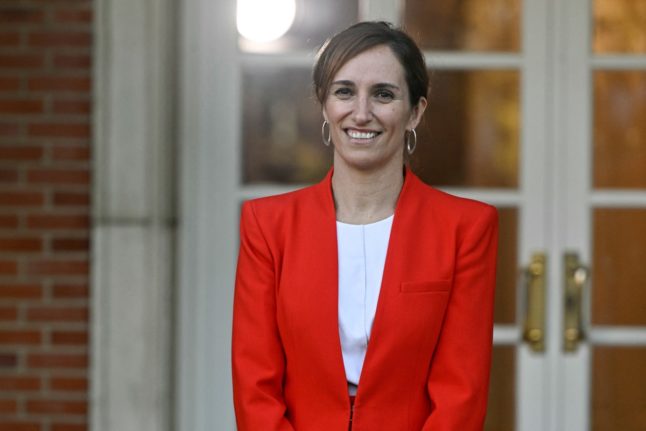
 Please whitelist us to continue reading.
Please whitelist us to continue reading.
Member comments